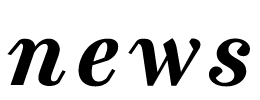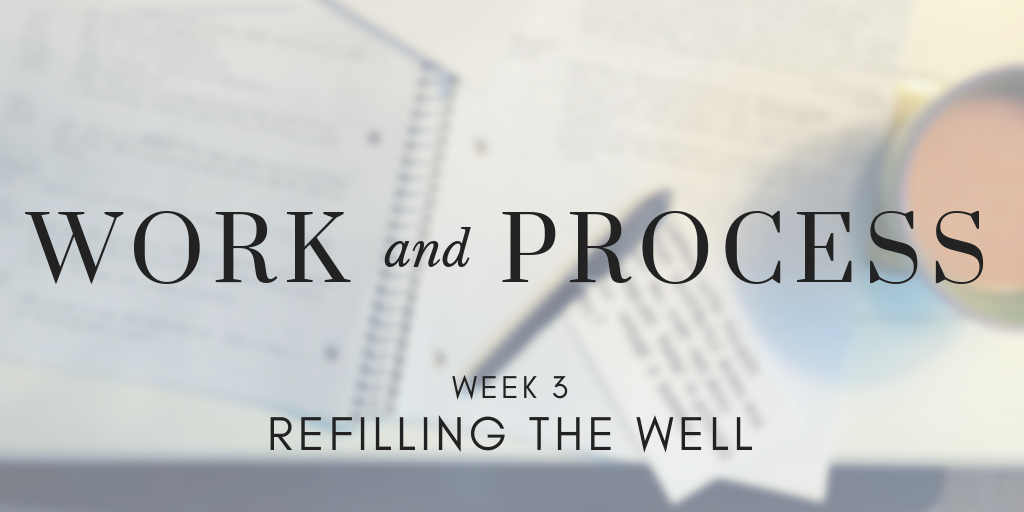|
I turned in a project last week, and for the first time in months, I don’t have a deadline to meet. I’m not consumed with producing words, accumulating pages, anxiously checking off chapters as I count down the days.
I mentioned this in my first post, but I have a tendency to get caught up in Doing Things. I love completing tasks, the feeling of accomplishment and the concomitant self-confidence of knowing I am A Person Who Can Get Things Done. So after I finish a project, my first instinct, of course, is to leap headfirst into a new one (like one of those long-simmering ideas I’ve had on the backburner for years). But I try not to. In fact, for a few days at least, I try not to do anything. Well, kind of. I try to practice a certain type of not-doing, of not-making, where I’m not creating things but absorbing them, where I’m more still than in movement. I’ve heard some people say that creativity is a resource, like water. You can only use so much so fast before you run out, and once that well of artistic energy is empty, it needs to refill before you can draw on it again. Other people think of creativity more like a muse with whom you’re building a relationship--I’ve heard my friend Diane Glazman, one of the best readers I’ve ever worked with, talk about her creativity this way.--and as with all relationships, it’s reciprocal. You have to care for your muse. You have to build trust. You have to show up for your art so your art will show up for you. However you think of your relationship to your creativity, I believe the idea is the same: You can’t continually take without giving back. You have to feed your muse. You have to refill your well. Perhaps, given enough time, my creativity would replenish itself naturally, through the everyday wonder of living, but at the moment, I have the privilege of writing for a living, so I’m almost constantly drawing on my artistic resources, which means that I need to find ways to refuel and recover my artistic energy when I can. To that end, I try to cultivate some rejuvenating practices, especially when I’m between projects, activities that help me to regain my artistic equilibrium, that tranquility Wordsworth says is necessary for poetry, or to collect new influences and perspectives, or to delve deeper into the things that inspire me. Here are some of those practices: Meditating. I took up meditation a couple years ago, on the advice of my acupuncturist, at a time when I’d worked myself so hard, I could have slept all day and still awoken exhausted. Since then, I haven’t always been great about doing it (especially when I need it most), but in the spirit of my word of the year (breathe), I’m trying to make meditation part of my daily practice. There’s something beautiful and focusing about it, and when I’m railing against my self-imposed inactivity, it reminds me to slow down, to take it easy, because I’m going to need this rest later. I recommend the Calm app, which features guided daily meditations as well as meditations for specific purposes, like dealing with stress or falling asleep. Observing and journaling. In addition to meditating, I’ve been trying to sit still for ten minutes a day, observing what’s going on around and inside me. What’s the character of the light today? How am I feeling? Where is my mind going when I allow it to go anywhere it wants? After sitting for a while, I usually jot down my thoughts in my journal, not for rereading later, but for the benefit of getting my thoughts and emotions outside of myself, where they don’t feel so tangled up and overwhelming. Cleaning and tidying. I suppose journaling for me feels like cleaning, like clearing the dusty corners of my mind and sweeping the floors of my heart, so I’m mentally and emotionally ready for whatever comes next. That’s also why I clean my workspace every time I turn in a project. I recycle and organize old notes. I sort my research books. I dust. I clean the slate of my desk for the next load of books, drafts, and research notes, so I can tackle my next project without clutter or baggage from the old one. Reading for pleasure. When I’m working on something, I have a hard time getting any significant pleasure reading done and I’m usually only able to get through a couple pages here and there, usually of something far outside the genre I’m working in. (When I was working on The Reader Trilogy, for example, I liked to read poetry, like Milk Carbon Black by Joan Naviyuk Kane or short story collections of adult science fiction like The Paper Menagerie and Other Stories by Ken Liu.) So I end up doing most of my reading when I’m between projects, picking books off my shelves to settle down for hours with a long read and a cup of tea. Reading for research. I also read to research my next project. Like I said last week, my ideas need to simmer for years before I can really start working on them, and part of that process is filling myself up with influences from history and art and literature. I try to read around three books for research (depending on the length) during each break, so the ideas I find there can continue to mix and cook inside me until the next time I can look at them. Making something that isn’t at all related to writing. There’s something really restorative, I’ve found, about using my artistic energy in a different way. Drawing, music, baking, and egg-painting (some of my oft-neglected but still-enjoyable hobbies) all require a different quality of creativity than writing. It’s so refreshing to make something with a different part of my mind/heart/senses, something sweet or nourishing or beautiful that isn’t at all related to my work. Naturing. For me, there’s almost nothing as rejuvenating as being outdoors. I love the rocks and the mountains and the water and the sound of the wind in the trees, the birds in flight and the predators padding along the paths, the work of the body, the way everything tastes better with a little dirt in it, the bigness and oldness of things out there, the indifference of the wilderness and at the same time, the need for us to care for and respect it. It makes me feel small and alive and connected and vulnerable. It soothes my nerves. It wakes me up. It makes me more appreciative and more grateful. Traveling. I’m not always able to do this, but I love traveling between projects. Like getting outdoors, seeking experiences outside of my usual mental/physical/emotional space readjusts my perspective. I like seeing new places, learning new things, tasting new foods, expanding what I think of the world and how we are in it. There is so much to this planet and its creatures, and every part of it is a new inspiration, a new idea, a new ingredient, a new question, a new thing to learn and respect and value and wonder at. Museuming. In addition to travel, attending museums is a great (and often more time- and cost-effective) way to broaden my intellectual/artistic/emotional horizons. I love immersing myself in other disciplines--visual art, history, culture, science--because they offer other ways to engage with the world, other lenses with which to see what’s going on around me and what my place is. If you’re in San Francisco, I highly recommend checking out some of my favorite museums: SFMOMA, the Asian Art Museum, the DeYoung, and the Cal Academy. Fellowshipping. I’m an introvert and a workaholic by nature, so usually when I’m working, I’m working, and almost all my thought and intention is bent toward whatever story is inside of my dying to get out. But writing can be so isolating if you do it this way, and therefore lonely, stressful, and even depressing. It can be really hard holding a world inside of you, diving into the difficult emotions of your characters, navigating the intersections between art and business, and dealing with the fears of making and sharing something so intensely personal with what can seem like an indifferent or even hostile world. But the truth is we’re not alone. At least, I don’t think we don’t have to be. And for me, that alleviates the strain of pursuing a career in a creative field to connect with other writers. To commiserate. To celebrate. To brainstorm. To get out of my head and my heart and my self-doubt. During breaks, I try to reconnect with friends and fellow artists. I aim to have long, leisurely conversations, over hot beverages or on the phone, about our personal lives and what particular anxieties are plaguing us and how our art is going. And not only does this fellowship remind me that I am not alone, it also inspires me, hearing how people I love and respect and admire are going about their creative endeavors, how they’re making and rethinking and revising and pursuing things that are so beautiful and compelling and startling and new. Maybe that’s what it is, for me. Maybe that’s what I need to refill my well, to nourish my creativity, to keep doing this art thing month after month, year after year. Connection. Connection with myself, whom I can so easily lose when I’m in the middle of a story. Connection with nature. With the world. With people. A sort of reaffirming that we are here and we are here together, and there is this deep ocean of art and science and humanity and and music and culture and philosophy all around me, all the time, and nothing I make is made in isolation but wholly part of/drawn from/in conversation with this vast sea of history, and when I refill the well, I’m returning to the waters--restored, reinvigorated, replenished, and ready for the next project. Next week: WRITING ADVICE. What’s the best piece of writing advice you’ve ever received? What’s the worst? What rules did you hate as soon as you learned them? What rules have become so integral to your practice that you couldn’t imagine doing without them? What is the relationship between the rules of writing and artistic freedom? How do you know when to follow the rules and when to break them? Have a think with me next Sunday at tracichee.com and/or post your own responses with the hashtag #workandprocess. Onward. <3 Work and Process is a year-long journey of exploring and reflecting on the artistic process, craft, and working in a creative field. Each Sunday, I’ll post some thoughts, wonderings, explanations, and explorations on writing and creativity, and by the end of it, I hope to have 52 musings, examinations,, meanderings, discoveries, bits of joy or inquisitiveness or knowledge to share. In each post, I’ll also include a topic for the following week, so if you happen to be inspired to question/wonder at/consider your own work and process, you’re welcome to join me. We’ll be using the #workandprocess hashtag across all social media platforms, and I hope we find each other to learn and connect and transform on our creative wanderings. Comments are closed.
|
ARCHIVES
February 2024
CATEGORIES |


 RSS Feed
RSS Feed